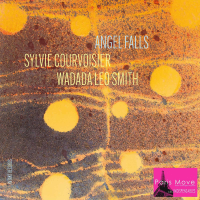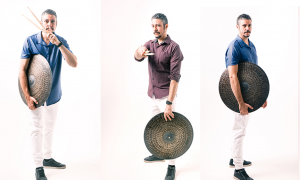Home » Jazz Articles » Interview » Mark Feldman: Taking an Eclectic Path
Mark Feldman: Taking an Eclectic Path
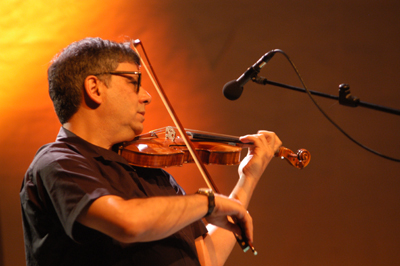
All About Jazz: You were in Europe the other week, then Pennsylvania, and off to Australia: which projects have you been working with recently?
Mark Feldman: I was in Switzerland, and we did five nights in this theatre in Lausanne called Theatre de Vidy. We did a double concert each night for five nights. The first set we did me and Sylvie in duo and then the second set we did our new quartet, which is me, Sylvie, Thomas Morgan on bass, and Gerry Hemingway on drums. That's from our new record on Intakt [To Fly To Steal (2010)].
And then I went to Spain and played with Masada String Trio—two concerts in Spain. Then I went to Swarthmore College in Pennsylvania and played with this German pianist, who is a visiting guest professor there, a German pianist named Hans Ludemann. Then I'm going to Australia to play with Abercrombie and that's a group with Abercrombie, [drummer] Joey Baron, and it's usually Thomas Morgan lately (it used to be Marc Johnson) but now Drew Gress is doing it sometimes—[so this will be] with Drew Gress [on bass].
Then I'm flying to Europe from Australia and doing 14 one-nighters in duo with Sylvie. So I'm kind of in a little busy period.
AAJ: Has that been typical lately, or is it fluctuating?
MF: Well it seems like I have a certain number of periods like that during the year. But they seem to run together like that, and then I'll be pretty much not busy for a while. I don't hardly play in New York.
AAJ: Does it get difficult jumping between all these different projects, or has it become second nature for you at this point?
MF: Since I'm working in just a handful of projects that I work in quite a lot, I know the material pretty well. I'm not doing too many. I'm doing a couple of things that are one-offs with people; there's a couple of Canadian people that I play with once in a while, where I don't really know the material. But I pretty much know the material between the Abercrombie and the Zorn, two groups of his: Bar Kokhba and Masada String Trio. And then the stuff I do with Sylvie, so it's not that hard, no.
AAJ: So you've cut back on a lot of the one-offs and sideman work you had been doing in the past?
MF: Well, in the '90s I was doing tons of sideman stuff, yeah. I sort of whittled it down, to less things. I still have some different projects that were interesting. I did a few concerto projects and stuff like that, where people had written me pieces. I did some chamber music stuff. But I'm not running out doing the same kind of stuff I did in the '90s, no.
AAJ: Do you do much session work in the studio?
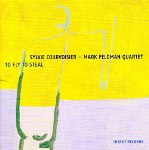 MF: You know, I used to do a lot. I used to work for Gene Orloff, who was a big concertmaster. I used to do [arranger] Don Sebesky sessions and [arranger] Arif Mardin sessions; but not anymore. But a lot of that work I used to do is really finished. I used to do Diana Ross sessions, and The Manhattan Transfer, I used to do all these big studio productions and record acts. But that's kind of done, I guess, a lot of it.
MF: You know, I used to do a lot. I used to work for Gene Orloff, who was a big concertmaster. I used to do [arranger] Don Sebesky sessions and [arranger] Arif Mardin sessions; but not anymore. But a lot of that work I used to do is really finished. I used to do Diana Ross sessions, and The Manhattan Transfer, I used to do all these big studio productions and record acts. But that's kind of done, I guess, a lot of it.
AAJ: Is that just because people don't want to pay for that any more, or aesthetically have people moved away from that?
MF: I don't know, I don't know. But I did a lot of records like that, quite a lot. But that kind of stopped, wound down after September 11th. I used to do some of those big film scores too. I was in the backup violin section. But that really wound down too. But everything seems to work out somehow. That winds down and something else winds up.
AAJ: I guess I've always been curious, how did you first come to New York after doing the whole Nashville studio thing?
MF: Well, when I came to New York, it was quite a while ago, I was about 30 years old, in 1986. I went to the Banff Center in Alberta, Canada for that kind of summer program. It was a great program, [bassist] Dave Holland was running it and there was a lot of great people there. When I was in Nashville, I sort of became friends too with Jimmy Raney, the great be-bop guitarist; the late Jimmy Raney. And so I used to go up to Louisville and play with Jimmy, and then I went to a couple of these different clinic things. Then I used to drive up to IU [Indiana University] and took some lessons with David Baker.
I was really in Nashville at the wrong [time]; it wasn't a great place for a young man in those days and I really wanted to play creative music. So when I was 30 years old, I felt like it was still a good moment, [and] I just packed up everything and moved out there. I owned this little house like 12 miles from the Kentucky line, and I sold the house and moved to New York. I didn't really know anybody. I wound up playing—there were a lot of street bands when I moved to New York—and I got in this street band circuit. People would actually call you and say we're going to do an afternoon hit at Bowling Green and an evening hit in Times Square. It was like busking, you know. Someone would have a generator, it would usually be the drummer and they'd have a little generator. So I was doing these street bands and they were really like be-bop bands, that's when I really learned the most be-bop tunes.
Then I got a job in the Darien Dinner Theater, and I was playing a musical, eight shows a week for really bad bread. Then somehow I got a call from [bassist/producer Bill] Laswell to do these string sections, and that was the first thing I did that kind of got me going. That was the Sly and Robbie record [Rhythm Killers, Island, 1987]. Laswell did a whole series of records with string sections, with like [keyboardist] Bernie Worrell and [bassist] Bootsy Collins and [singer] Afrika Bambaataa and it was usually [pianist] Karl Berger, [who] did the arrangements. I was playing, I think, lead violin on most of those.
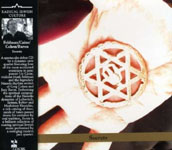 And at the same time I was going to this rehearsal band in the West Village. It was kind of like an avant-garde rehearsal band run by Walter Thompson, and [trumpeter] Herb Robertson was in it, among other people. That was during the days when [saxophonist] Tim Berne had his sextet with Joey and Herb and all them on Columbia, like late '80s. Herb knew that [bassist] Mark Dresser and [cellist] Hank Roberts were starting a string trio and they were actually auditioning violin players, and so I went in for a real audition. It seems funny now that you would audition. So that became the Arcado String Trio, and we did a bunch of records on JMT, which became Winter & Winter, and did a lot of tours. That was really my introduction to the whole—what did they call it back then, "avant jazz," they used to call it—scene. It kind of centered around the old Knit on Houston street, informally.
And at the same time I was going to this rehearsal band in the West Village. It was kind of like an avant-garde rehearsal band run by Walter Thompson, and [trumpeter] Herb Robertson was in it, among other people. That was during the days when [saxophonist] Tim Berne had his sextet with Joey and Herb and all them on Columbia, like late '80s. Herb knew that [bassist] Mark Dresser and [cellist] Hank Roberts were starting a string trio and they were actually auditioning violin players, and so I went in for a real audition. It seems funny now that you would audition. So that became the Arcado String Trio, and we did a bunch of records on JMT, which became Winter & Winter, and did a lot of tours. That was really my introduction to the whole—what did they call it back then, "avant jazz," they used to call it—scene. It kind of centered around the old Knit on Houston street, informally.
So that was that whole thing with Mark Dresser, Hank and Tim and Herb Robertson, and I sort of became in their orbit a little, and that was the late '80s. But the first year here was pretty rough, let me tell you that.
AAJ: I imagine, going from that regimented hierarchical scene to something like the way things were here.
MF: It was also I was working so much in Nashville and then I came here. The first year, it was the first time I got audited by the IRS too [laughs].
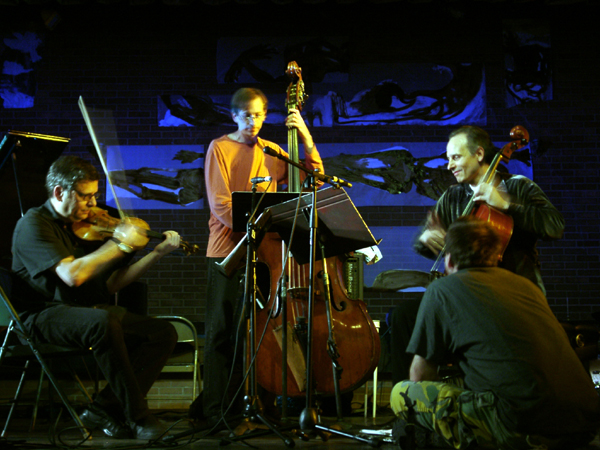 Mark Feldman (left), with Masada String Trio
Mark Feldman (left), with Masada String Trio
AAJ: They didn't believe you?
MF: They didn't quite believe what was going on: from working to no work. I didn't report all those quarters I made in Times Square [laughs].
AAJ: Like you said, you've whittled down to certain projects that have become kind of enduring—like Masada String Trio, and obviously the duos with Sylvie.
MF: And the quartet with John Abercrombie, that's been over 10 years. It started out I was added on to his trio with [drummer] Adam Nussbaum and [organist] Dan Wall. The first record was with those guys with me and [saxophonist] Joe Lovano and [trumpeter] Kenny Wheeler, and that was called Open Land [ECM, 1999]. That was a nice record.
It's not that I decided to do that, it was just sort of like that was the way things unfolded. Those groups got more busy and more successful, so I became less available for a lot of the other things I was doing. I didn't plan anything out: say "this is what I want to do," or "I want to work with those groups," or "I have this kind of goal." I just kind of wanted to get by and that was the way it worked out.
I stayed in New York all these years and played on a lot of records and went to Europe a lot. I had these concertos written for me that I did with the Netherlands Radio Philharmonic, twice. Then once with another orchestra in Einhoven [Holland] [written] by Guus Janssen, and it was a violin concerto with improvising violin also. With the WDR band [of Koln, Germany], Bill Dobbins wrote me a concerto for the violin and jazz orchestra, and I did that with the WDR band. That was actually a tour; we went all over.
Then I won the Alpert Award in the Arts [2007], which was a big thing for me. After I won that award, I was able finally to get a good instrument for the first time in my life. That really made a big difference; it kind of changed my direction. Even a few years before [that], but for about the last nine years or so, I stopped playing electric violin, and now I just play through a microphone. I went back to my acoustic roots a little bit.
AAJ: Does that necessitate a different kind of approach, a different dynamic range?
MF: I can only play with people that have a certain dynamic range. Because if it's too loud, then I can't play with a microphone.
AAJ: Because you did play in quite a few bands that had horn sections, and everything else, electric instruments.
MF: I mean I play with Abercrombie with a microphone, so I can get pretty loud with a microphone, but not to a certain point. Back in the days when I was working with [drummer] Billy Hart's group and stuff like that, I always used a guitar amp.
AAJ: With New and Used and Mosaic?
MF: Guitar amp. When I moved to New York, it was in the late '80s, I had all the stomp pedals; I had a big budget for 9-volt batteries when I moved here [laughs]. I was way into it; I could even put them on my tongue [laughs]. But that's where you draw the line: the guys who do that, and the guys who don't [laughs]. So yeah, I was way into stomp boxes, and it was still kind of the analog days, a different vibe too. Little by little, I got out of it.
AAJ: These days you're also kind of concentrating a little bit more on leading and co-leading projects as well?
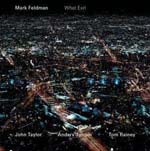 MF: A little bit, yeah. I did this record for ECM while I had a band, and that was a record called What Exit. That was 2006, with [pianist] John Taylor, [bassist] Anders Jormin, and [drummer] Tom Rainey. I led that band, did that record, and did a tour in Europe with some of those same guys, I think with just Tom. For the piano and the bass, I had a pianist from England, Huw Warren, from Wales actually, and Drew Gress on bass for the tour. Then I sort of didn't really pursue it after that. But now this new thing with Sylvie, this quartet, we're co-leading it, with Thomas Morgan and Gerry.
MF: A little bit, yeah. I did this record for ECM while I had a band, and that was a record called What Exit. That was 2006, with [pianist] John Taylor, [bassist] Anders Jormin, and [drummer] Tom Rainey. I led that band, did that record, and did a tour in Europe with some of those same guys, I think with just Tom. For the piano and the bass, I had a pianist from England, Huw Warren, from Wales actually, and Drew Gress on bass for the tour. Then I sort of didn't really pursue it after that. But now this new thing with Sylvie, this quartet, we're co-leading it, with Thomas Morgan and Gerry.
AAJ: It's the same instrumentation, but kind of a different...
MF: Totally different vibe. I mean the ECM thing was [that] I made an "ECM record" in the best way that I knew how. But it's different, it should be different, it's four years later.
AAJ: And then there's also the new duo record.
MF: Right, Oblivia (Tzadik, 2010), it's called that. We recorded, me and Sylvie, before, mostly playing John Zorn's music, and this is the first one we made of all of our own music.
AAJ: There was the other one, Music for Violin and Piano (Avant, 1999)...
MF: Oh yeah, we started out with one with our own music. But that was so long ago I don't even count it as a real one, I think that was a practice record [laughs]. No, not really.
AAJ: You reinterpret the one song from there ("One Too") on the new record (Double Windsor).
MF: Yeah right, we do, you're right. Glad somebody's paying attention... But we play it much better now, I think.
AAJ: It's a little more pared down, some of the sections.
MF: We cut out some excess baggage. But we have some repertoire that goes way back there for sure, but we got some new stuff too.
AAJ: Is that something you'll do often, revisit older material and put it in new context?
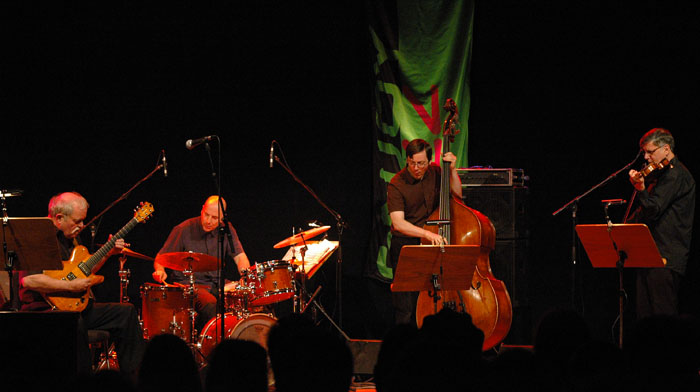 Mark Feldman (far right), with John Abercrombie Quartet
Mark Feldman (far right), with John Abercrombie Quartet
MF: I mean, a lot of it is, because I have such a bad work ethic, that I don't write enough new music so that I'm forced to go back and use the old music. But I only go back and use it if I really like it. I don't write a lot of tunes, but I think most of the ones I have recorded, it's because I was pretty committed and thought they were good. I'm not writing tons and then recording whatever. I tend to be the type of person that if I get a deadline, then I come up with something. And if I don't have a deadline, I tend to work on my playing, not so much on writing new music.
AAJ: So you still maintain a daily practice routine?
MF: I still practice, I still take the occasional violin lesson to keep my technique up and improve it. Yes, for sure.
AAJ: When you practice, do you practice specific things or just kind of play?
MF: I practice really, really, really basic things, like the most basic elements of playing: major scales, open strings, shifting. Really the basic things and then they apply to everything. Unless I have somebody's piece to learn which is hard, which happens, I practice really the basic stuff. It seems more and more important, the older I get...and I am getting older.
AAJ: Coming up in June, you'll be playing quite a bit in New York as co-curator [of The Stone].
MF: Yeah, that's different. I mean normally I play once a year at like Birdland with John Abercrombie and then a couple of things that John Zorn will do during the year. Once in a while I've had a gig at Merkin [Hall]. I'm playing with Sylvie, first we're doing a couple of duo sets at the Whitney Museum. There we're playing the music of another Swiss composer and conceptual artist, Christian Marclay. We're doing two pieces of Christian Marclay at the Whitney; they're having a big exhibition of his visual art and music [note: actually July 3rd & 4th, 2010].
AAJ: Is he still doing the turntable stuff?
MF: I have no idea. I don't know if he still does that, but this is more like he has artwork and scores, and we play the scores. Then we're playing in duo the 5th [of June, 2010, at The Stone]. On the 10th, I'm doing a duo with [bassist] Mike Formanek, which I did once in Italy; that was really fun.
AAJ: Because you played in his band way back also.
MF: Yeah, I played in his band and I've done other things with him.
AAJ: Is it going to be improvising?
MF: It's going to be really heavy on the improvising, but we'll have some pieces too. On the 12th, we're doing the new quartet. Then on the 14th and 15th, I go to Canada to play with a jazz flautist from Montreal that's got a little string section in his thing, and I lead the string section and play solos. His name is Francois Richard. Then I come back, and we do an older project of Sylvie's on the 19th, called Lonelyville, which was another Intakt record [2007] with [laptop artist] Ikue Mori. Then on the 26th, we do two sets of Masada String Trio, and John will be there conducting. Then July 1st, we go to Montreal Jazz Festival and do a Masada marathon. So I'm busy in June.
AAJ: With curating the program, did you have a lot of specific things in mind that you wanted to do, or was it just sort of which people were available?
 MF: You know the problem is that afterward you always think, "Ahhh, I should have done more like this, and oh, I forgot this guy," and it's embarrassing because you forgot how many people you [know]. But I wanted to get some people: there are two violinists—one is really upcoming and very talented, named Scott Tixier, so I wanted to get him a gig; and then there's another one who's older, so I don't want to say he's "upcoming," but he's really talented and not maybe so known, named Zach Brock. Have you heard of him?
MF: You know the problem is that afterward you always think, "Ahhh, I should have done more like this, and oh, I forgot this guy," and it's embarrassing because you forgot how many people you [know]. But I wanted to get some people: there are two violinists—one is really upcoming and very talented, named Scott Tixier, so I wanted to get him a gig; and then there's another one who's older, so I don't want to say he's "upcoming," but he's really talented and not maybe so known, named Zach Brock. Have you heard of him?
AAJ: I think I've heard the name, but I'm not really familiar with his music.
MF: He played in Stanley Clarke's trio, so he's gotten out there a little bit, but he's still not that well-known. So I wanted to get him on it. And then I wanted to get Hank Roberts on it. And then Sylvie wanted to present some pianists, which she did. Then the rest we just filled in with people that we knew, people we knew were good musicians.
AAJ: How long did it take to pull the schedule together?
MF: Oh, so fast. All you had to do was make a phone call. There's really not enough places to play, I guess. It's very easy to book a month there, once you get the list together and make the calls.
AAJ: You're presenting quite a nice range of different stuff then.
MF: I think so, I think it will [be].
 AAJ: You've played on dozens and dozens of recordings. What would you pick out or point people to as things you are particularly proud of or that exemplify your playing?
AAJ: You've played on dozens and dozens of recordings. What would you pick out or point people to as things you are particularly proud of or that exemplify your playing?
MF: There's some that I'm really happy to have taken a part of, but it doesn't mean they have anything to do with my playing so much. One was [saxophonist] Michael Brecker's Wide Angles (Verve, 2003), the second to the last record he did before he passed away. That was such a thrill to work with him, and I was so glad. And another was a similar kind of record, and instrumentation almost, was this [saxophonist] Chris Potter record, Song for Anyone (Sunnyside, 2007). But those are records where I'm more like playing concertmaster, so to speak. And there were some records like that with [saxophonist] Lee Konitz.
I still like my solo record, Music for Violin Alone [Tzadik, 1995/2008], a lot and I like What Exit, the ECM record, a lot, and the last two that I did with Sylvie and the quartet. Man, there are some really good ones, you know. Of all those old ones, I can't really remember which ones are good or not, but I think the ones I mentioned are all good. And some stuff like Masada String Trio live, the 50th Anniversary record [50th Birthday Celebration, vol. 1 (Tzadik, 2004)], I really liked that. We just recorded another Masada String Trio record, which I don't know what it's called yet or when it will be released; Book 2 stuff, new stuff that hasn't been recorded by anyone else. That, I heard, came out really well, I actually haven't heard it, but I remember the session seemed really good.
AAJ: That's been interesting the way that with that trio, he's been able to use it for not just that music, but also some of the Filmworks stuff, the way the chemistry between the three of you seems to be really strong.
MF: Right. Well, I mean, I've known [cellist] Erik [Friedlander] since, jeez, '88 or something, played on different stuff with him. The first one I played with him was with Dave Douglas: oh, there's all those records I did, they were good. I did Dave Douglas string band, then Dave Douglas Charms of the Night Sky; those were good records.
AAJ: I think that was probably the first time I saw you play, with Charms of the Night Sky.
MF: Yeah, I had all black hair then too, it was good [laughs]. Another record I really liked, to get back to your first question, is Lucifer (Tzadik, 2008), the Bar Kokhba record. I think that's a great record. [Guitarist] Marc Ribot sounds incredible on that record. I really like that record a lot; it has kind of an effortless feeling to it when I hear it back. There's so many good records with John; you know as soon as I hang up, I'll remember everything.
But that stuff with Dave Douglas, that was good too. The stuff with Arcado String Trio, that was good. We made a record called Live in Europe (Avant, 2007) that was recorded with [cellist] Ernst Reijseger instead of Hank Roberts that came out really good. And we did stuff with Hank Roberts with a symphony orchestra that came out good [For Three Strings and Orchestra, (JMT/W&W, 1992/2004)]. There was another one called Behind the Myth (JMT/W&W, 1990/2003) that I thought was pretty good.
AAJ: And there's the one with the clarinet trio as well [Double Trio, Green Dolphy Suite (Enja, 1995)].
MF: Oh yeah, that's a really good record. That would be one I'd say I'm really proud of; called the Double Trio, on Enja. And we did a lot gigs, I mean a lot of gigs for a special project. We probably did about eight or nine gigs. We played the Moers Festival, it was fun, that was a long time ago, like '95, '94. Yeah, it's really like rolling down the hill now, picking up speed.
Those were all good, really good. If I had a list in front of me of all of them, I think I'd really be able to start to remember. I like the ones with Tim Berne, those were good; Formanek's, those were good. That one Formanek is called Extended Animation (Enja, 1992), that was a good record, with [guitarist] Wayne Krantz. And a lot of these records with Abercrombie too are great. I really like Open Land (ECM, 1999), I think it's one of my favorites, and this other one called The Third Quartet (ECM, 2007). And there's one called Class Trip (ECM, 2004) that I really like. Those are really nice records too.
AAJ: Do you find that you play differently in these situations?
MF: Yeah, I play differently on Abercrombie's record than I would on some of these other records. The material is so different: John Abercrombie writes such gorgeous songs. It's really a different material than the stuff I'm doing with Sylvie. I mean it should be different, so I do play differently, yes.
AAJ: Is there anything else you wanted to touch on or cover?
MF: I can't think of anything really, except, thank you for asking me to do this.
Selected Discography:
Sylvie Courvoisier/Mark Feldman, To Fly To Steal (Intakt, 2009)
John Abercrombie Quartet, Wait Till You See Her (ECM, 2009)
Bar Kokhba Sextet, Lucifer: The Book of Angels, Vol. 10 (Tzadik, 2007)
John Abercrombie Quartet, The Third Quartet (ECM, 2009)
Mark Feldman, What Exit (ECM, 2005)
Masada String Trio, John Zorn 50th Birthday Celebration, Vol. 1 (Tzadik, 2003)
Dave Douglas, Five (Soul Note, 1995)
Mark Feldman, Music for Violin Alone (Tzadik, 1994)
Photo Credits
Pages 1, 4: Courtesy of Mark Feldman
Page 2: Frank Rubolino
Page 3: John Kelman
Tags
PREVIOUS / NEXT
Support All About Jazz
 All About Jazz has been a pillar of jazz since 1995, championing it as an art form and, more importantly, supporting the musicians who make it. Our enduring commitment has made "AAJ" one of the most culturally important websites of its kind, read by hundreds of thousands of fans, musicians and industry figures every month.
All About Jazz has been a pillar of jazz since 1995, championing it as an art form and, more importantly, supporting the musicians who make it. Our enduring commitment has made "AAJ" one of the most culturally important websites of its kind, read by hundreds of thousands of fans, musicians and industry figures every month.








